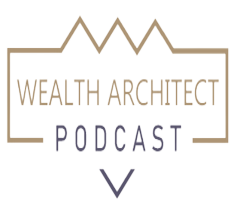Fed Printing Money
Today, we’re going to have just a quick little lesson on economics. And this is my big thing right now. And it’s been my big thing for a while actually. And that’s inflation caused by the Fed printing money. Now the Fed doesn’t really print money. But let’s go back and talk about what the Fed is. The Fed is the Federal Reserve Bank, right? It’s actually not a government organization, it’s a privately held bank, it’s supposed to be specifically separated from the government. And it’s supposed to, it was started in 1913. And it was supposed to basically be the, like the diaphragm of the economy, right? When you need to breathe in, you need to expand the money supply, and the Fed was there to provide that. And then when you need to contract the money supply, because things were growing too quickly, the Fed was there to pull things back. But what has ended up happening through a very slow evolving process. It’s become an enabler, to fiat currency. And fiat currency just means money that’s backed by nothing, right? For a long time, money in the United States was backed by gold and silver. In fact, I’m a coin collector. And if you pull out some of my old bills, on the top, it would say silver certificate, or some of the old ones would take gold certificate. And if you read it, it said, you were able to take that certificate into the bank and get an equivalent amount of silver or gold, right? In 1971, we went off of the gold standard, meaning we didn’t have the gold to back up the value of the dollar. And that thing that started that launched this incredible period of time, where things just went out of control, and they weren’t backed by anything other than the full faith and credit of the US government. Well, we’re able to leverage that, at least up until right now. But I think that’s in jeopardy, because we were the reserve currency of the world. Now, very few currencies, that are the reserve currencies of the world last more than 100 years, like the last one was the British pound. And we took them over. And before that, I think it was the French franc, or, you know, before that it was the, you know, the Netherlands, Netherlands had their money. And before, you know, whatever, it just goes like that, where after 100 years, people realize, you know, that, that people get corrupt in government, and they start to waste money when they start to get corrupt. And it’s happening here. And so let me go back to what that is all about. So, in 71, we went off the gold standard, and we just went to this fed, that was supposed to be independent. But really, they’re now more than ever, certainly tied to the Treasury. They’re tied to the government, they work hand in hand, and they basically painted themselves in the corner. Now, what does that mean? Well, the Fed has been expanding the balance sheet at a rapid rate, certainly since 2008, when we had the financial crisis. And so, as they’ve been expanding that balance sheet, just in the last couple years here, since the 2020, decade began, has been, I don’t want to say exponential, but it’s pretty darn close to exponential, right, we’re going almost parabolic with the amount of money that we’re supplying. So, the way you have to look at that is, okay, Mark. So, what, it’s always worked in the past, it’ll always work in the future. But there has never been a currency that’s lasted very long. In the past, like, we’re not using the stuff that the Romans used to use, that was a great currency. And then there was a decline of the Roman Empire, right? We don’t use the same currency that the Greeks used to use. 2000 3000 years ago, there was a decline of the Greek Empire, right. And so, currency and economies go hand in hand, empires to the United States have been the preeminent Empire for 200. And something years now, certainly in the last 100 years, where we won a couple of wars, and we help rebuild continents and countries. But that’s coming to an end. And it’s coming to the end, and you’re seeing it on a graph, right? It’s not that, it’s an opinion, it’s the graph, like when things go parabolic. I’m a stock trader, when they go parabolic. That means there’s a period of time where you can make a lot of money, and then all of sudden things crash, and you can lose a lot of money. Now, I don’t know when the party ends could end in 20 years, 20 months or 20 days. I don’t know, all I can tell you is that never before in our history have we printed this much money now. It’s not actually a printing it used to be they used to, you know, crank up these printing press and they would just pump out all these $100 bills. And by the way, why aren’t there $500 bills now, why aren’t $1,000 bills, but that’s a subject for a different podcast. But they print these bills. Well, that’s what they were doing. Now what they do it’s so easy. All they do is they go in and add zeros to the banks to the federal bank reserve system, and they add some zeros to the end. And it’s pretty easy, right? They click a mouse, and boom, there’s a bunch, you know, there’s billions or trillions of dollars pumped into the economy. And what happens when you have extra money sitting in your pocket? Well, you either want to save it or you want to spend it, you could invest it. And that’s what a lot of people are doing from their savings. But most people spend it. And so, they go and buy stuff that they wouldn’t have bought when they didn’t have the money. And if they’re willing to buy something for $100, well, since they have a little extra money, what’s 110 And that creates inflation. And that’s all really coming from two things. It’s coming from government irresponsibility, they spend more than they bring in in taxes, right? And they spend it in a very inefficient fashion. So, if the government allocated that money to private enterprises, most private enterprises, right, not all of them, obviously, but private enterprises do a much better job than the government in allocating and spending capital. So, what happens is the government takes in all this money, but they’re not business people. They’re the government. Right? So, they hire a bunch of people to do the same job that just a few people might do in a private industry, right? Why isn’t the government Amazon? Well, Amazon’s much more efficient than the government, right? The government can’t even deliver your mail without losing billions. And, you know, Bill, I think it’s probably trillions now. But anyway, we’ll go with billions of dollars every year, it’s delivering mail. And they get to have all this money and subsidy come in from Amazon where you know, they were, they were going to go to the house anyway. Now they get the extra money for stopping off and dropping an Amazon package, and they still can’t figure out a way to make money. So, if you put the postal services in the hands of a private company, they’ll probably figure out a way to do something better than the government is doing. But yet the government is slow and clunky. And we there are certain things that we believe that we should have the government do and the post cert Postal Service is one of those things. But at the end of the day, when we have the government doing anything, certainly in charge of the money, they behave irresponsibly. And that happens hand in hand with two entities right now. It’s the government’s the politicians, and the politicians need money from the Treasury and the Treasury is run by Janet Yellen. And Janet Yellen used to be the secretary of the Fed, right? She used to be the head honcho at the Fed, the Fed was supposed to be independent. And then they took Janet Yellen, they put her in the government. So, are they independent anymore? I don’t think so. Right. I think first of all, I don’t think she knows what she’s doing. And second of all, I think that the Fed and the government are in cahoots. Now, because they need each other, the government needs to spend more money to buy more votes to let people sit at home or do whatever it is they do, are put in these government programs give out free things, and they’re not free, that means that rest of us are paying for them. And we’re paying for them either in higher taxes, or a very insidious tax called inflation. Inflation is a tax on mostly the poor, because a lot of people can, you know, can afford to spend an extra $10 on a TV, right, but that extra $10 for somebody who doesn’t have a lot of money that goes for groceries. And so now when that $10 goes for groceries that they did, like, they don’t have extra money after that. And so, you’re really taxing the poor. But the poor don’t realize it, right? We just vote for these people, because they go, they’re going to give us all this free stuff. But they don’t realize that they’re paying for that in taxes because of inflationary pressures. So, the government spends all this money because they’re buying votes, and they’re doing things in a very inefficient way. And so, they need a lot of money. And they’re like, hey, where are we going to get this money? And they turn to the Treasurer, and they go, can you give us some more money? The Treasury returns to the Fed and they go, can you guys give us some more money? And the Fed goes, well, sure, we’ll give you more money. So, the Fed has kept inflation rates, sorry, official inflation rates, and official Fed Funds rates, the amount of money that they charge their overnight lending, lending banks, members banks, right, at a very artificially low price. And that’s created that’s helped to create more and more inflation. So that chart that we put on the screen is indicative, the higher that value goes, the more I believe, right, that more that we’re in jeopardy as taking that dollar off the dollar reserve. We’ve been in the dollar reserve currency for 9495 years now. We’re putting that in jeopardy and we’re making that less likely to stand right. And if that happens, I think it could happen quickly because we’re all connected, right? Right now, right? I mean, 100 years ago or 50 years ago. When we didn’t have the information that we have now, now we have tons of information. We know almost at the moment how much more we’re paying for things. We know how much the government; we think we know how much the government is printing in money. And so, these things are happening faster and faster and faster, the brain can’t comprehend it, which also means that things could collapse faster and faster when they do. I don’t know when they will, if they will, I believe they will. And I believe if you study the past economies over the last 1000 2000 years, you see the same graph, right? You see irresponsible government, you see money printing, fiat money, money that goes off the you know, the standard as a reserve currency, and then you see a collapse of economies and oftentimes, followed by collapse of civilizations or certainly collapses of empires. So that’s what’s going on. And that’s the quick little lesson on the money supply. And it’s a quick little lesson on the government and the Fed and how printing money causes inflation. Inflation hurts you and it’s going to hurt our economy. At some point. When the party ends and the music stops. You better have a chair to sit in.
- By Mark Yegge
- In Blog
- 0 comments



